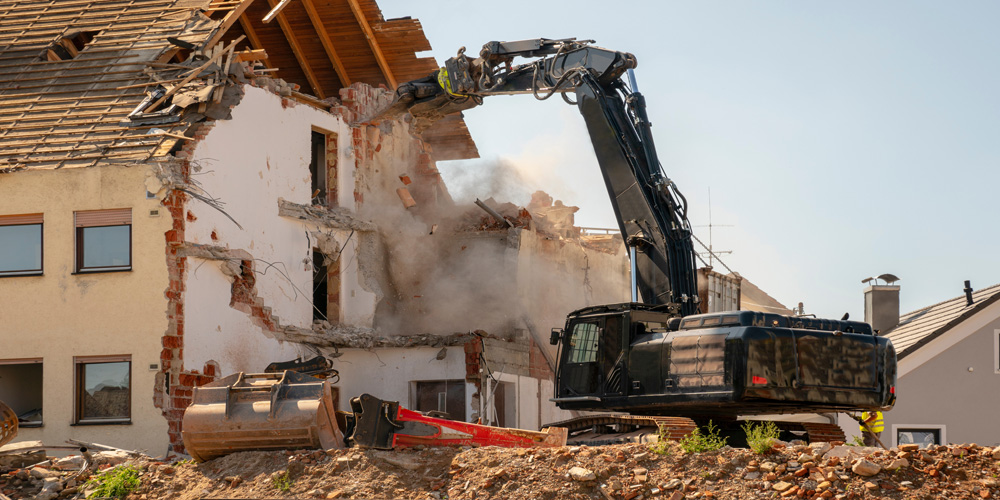Finding Quality Used Commercial Machinery
Are you looking to expand your business operations without breaking the bank? Investing in used commercial machinery can be a fantastic and financially sound decision. Buying pre-owned equipment allows you to acquire the machine tools you need at a fraction of the cost of new models. This guide will walk you through where to find quality machinery in very good condition and what crucial factors to check to ensure you make a smart purchase that serves your business for years to come.
Key Factors to Consider
Before you start buying, it’s vital to do your homework. Acquiring used commercial machinery requires careful consideration to ensure you get the best value and avoid future headaches. A thorough evaluation can save you from financial risks and project delays down the road.
Your primary focus should be on the machine’s physical state and its documented past. This involves a detailed inspection of the machine tools and a review of all relevant paperwork. Let’s explore how to properly assess a machine’s condition and what certifications to look for.
Assessing Machine Condition and Service History
Verifying the condition of used equipment is the most critical step. Start with a complete visual inspection. Look for signs of excessive wear and tear, rust, or damage. Pay close attention to any welding repairs, as they might indicate structural weakness if not performed by the original manufacturer. How can you verify the condition and working order of second-hand machinery? A hands-on test is essential.
Next, review the machine’s service history and operating hours. A high number of hours suggests more wear, which could lead to more frequent repairs. The service history will reveal how well the equipment was maintained and if there are any recurring issues. This information provides valuable insight into the machine’s potential longevity and performance.
Finally, test the equipment yourself. Start the engine and listen for unusual noises or vibrations. Check the engine exhaust for black or white smoke, which could signal problems with injectors, air filters, or even the head gasket. Operating the machine tools and testing all functions will confirm if it is in very good condition and ready for work.
Understanding Essential Documentation and Certifications
Alongside a physical inspection, reviewing the machine’s paperwork is non-negotiable when buying. What documents or certifications are important when buying used machinery? Proper documentation provides a transparent look at the equipment’s past and helps you understand its true value. A reputable seller should have no problem providing these records.
This history can tell you about previous owners, how often the equipment changed hands, and how diligently it was cared for. Poorly maintained machinery is more likely to cause problems, so a detailed history is a good indicator of its overall health. Don’t hesitate to ask for comprehensive records; it’s a standard part of the buying process.
Key documents to request include:
- Maintenance and Service Records: These logs detail all repairs, routine maintenance, and part replacements.
- Purchase History: This shows the number of previous owners and can reveal how the machine was used.
- Proof of Ownership: Ensure the seller has the legal right to sell the machinery.
Types of Used Commercial Machinery Available
The used market is filled with a wide variety of commercial machinery to suit nearly any industry. From heavy construction to specialized agriculture, you can find reliable equipment that meets your specific needs. Knowing which types are most commonly available can help you narrow your search.
You’ll frequently find everything from large excavators and dozers to smaller forklifts and versatile attachments. This broad availability makes it easier to find the right machine tools for your projects. Now, let’s look at some of the most common categories of used machinery you’ll encounter.
Construction and Industrial Equipment
Construction and industrial sectors rely heavily on robust machinery, and the used market is a great source for this equipment. You can commonly find dozers, rollers, excavators, and forklifts from leading brands like Caterpillar, JCB, and John Deere. These machines are built to last, making them excellent candidates for a second life in your fleet.
When inspecting this type of equipment, pay special attention to the undercarriage, hydraulic systems, and any attachments. The compiled information highlights the availability of items like muck grabs and various buckets, which add to a machine’s versatility. Which types of commercial machinery are most commonly available used? The table below outlines some popular options.
| Equipment Type | Common Use |
|---|---|
| Excavators | Digging, material handling, demolition |
| Dozers | Pushing large quantities of soil, sand, and other materials |
| Forklifts | Lifting and moving materials in warehouses and job sites |
| Rollers | Compacting soil, gravel, or asphalt |
Agricultural, Manufacturing, and Specialty Machines
Beyond construction, the used market is also a treasure trove for agricultural and manufacturing machinery. You can find a huge selection of used farm equipment, including tractors, cultivators, plows, and sprayers. Brands like Massey Ferguson, Fendt, and Case International are frequently available, offering proven reliability for your farm.
Can buying pre-owned machinery help my business grow cost-effectively? Absolutely. For both farming and manufacturing, acquiring used machine tools allows you to expand your capabilities without the significant capital outlay of buying new. This approach frees up funds for other critical business areas while still getting the job done.
Whether you need a vintage tractor for a special project or a modern telehandler for material management, the variety is extensive. The key is to find machinery that has been well-maintained, ensuring it will be a productive and cost-effective asset for your operations.
Searching Reliable Platforms
Now that you know what to look for, where can you find reliable platforms to buy second-hand industrial equipment? The right marketplace can make all the difference in your buying experience, connecting you with reputable sellers and a wide selection of machinery.
There are two primary avenues to explore: online marketplaces and traditional dealer networks. Both have their advantages, and the best choice for you may depend on your location, needs, and comfort level with the buying process. Let’s examine these options more closely.
Leading Online Marketplaces and Auction Sites
Online marketplaces have become a go-to source for buying used commercial machinery. These platforms offer an extensive inventory from sellers across the country, allowing you to compare prices and specifications from the comfort of your office. You can browse everything from heavy construction equipment to specialized machine tools with just a few clicks.
When using these sites, one of the most important factors is the seller’s reputation. Look for platforms that provide customer reviews and testimonials to gauge the credibility and trustworthiness of the seller. Excellent customer service is a sign of a reliable partner who can assist you through the buying process.
Before committing to a purchase online, be sure to:
- Thoroughly read the equipment descriptions and review all photos.
- Request detailed maintenance records and the machine’s history.
- Inquire about inspection possibilities, whether in person or via a third party.
Dealer Networks and Local Suppliers
Don’t overlook the value of local dealer networks and suppliers. Reputable dealers often have an enviable reputation for quality stock and helpful customer service. They possess deep knowledge of the machinery they sell and can offer sound advice to help you make the right decision for your business.
Are there risks involved in purchasing used machinery for my business? Yes, but working with an experienced dealer can significantly mitigate them. Dealers often inspect and service the machinery they sell, providing a level of quality assurance you may not find elsewhere. You also get the benefit of seeing the equipment in person and asking questions directly.
Building a relationship with a local supplier can be beneficial in the long run. They can become a trusted partner for future buying needs, parts, and service. This hands-on approach and expert guidance provide peace of mind that is hard to put a price on.
Finding Used Commercial Machinery
Finding quality used commercial machinery for sale requires careful consideration and research. By assessing machine condition, understanding essential documentation, and exploring various reliable platforms, you can make informed purchasing decisions that fit your business needs. Whether you’re in construction, agriculture, or manufacturing, the right machinery can enhance productivity without breaking the bank. Remember, investing in used equipment can often yield significant savings while still providing the performance you require. If you’re ready to explore your options and find the best deals, don’t hesitate to reach out for a free consultation with our experts today!
Frequently Asked Questions
Are there risks and warranties when buying used commercial machinery?
Yes, risks exist, primarily related to the machine’s hidden mechanical issues. Mitigate these by buying from reputable sellers who provide detailed histories. Warranties are uncommon for used machinery, but some dealers may offer limited coverage. Always ask about their policies and aim to find equipment in very good condition.
How do used machinery prices compare to buying new equipment?
Used commercial machinery is significantly more cost-effective, with prices reflecting the machine’s age, usage hours, and overall condition. While you save money, be wary of prices that seem too low, as they can be a red flag. Researching the market value before buying is always a smart move.
What should I know about shipping and logistics for used industrial machinery?
Shipping and logistics are typically the buyer’s responsibility. You should factor transportation costs into your total budget when buying used machinery. Coordinate with the seller on pickup times and requirements. A seller with good customer service can help make this part of the process run smoothly.
Key Highlights
Here are the key takeaways from this guide on finding used commercial machinery:
- Always assess the machine’s condition, service history, and operating hours before buying.
- Understanding the machinery’s documentation, including maintenance records, is crucial.
- You can find quality used machine tools through online marketplaces, auction sites, and local dealer networks.
- Commonly available machinery includes excavators and agricultural machines like tractors.
- Good customer service and a reputable seller are essential for a smooth buying process.


